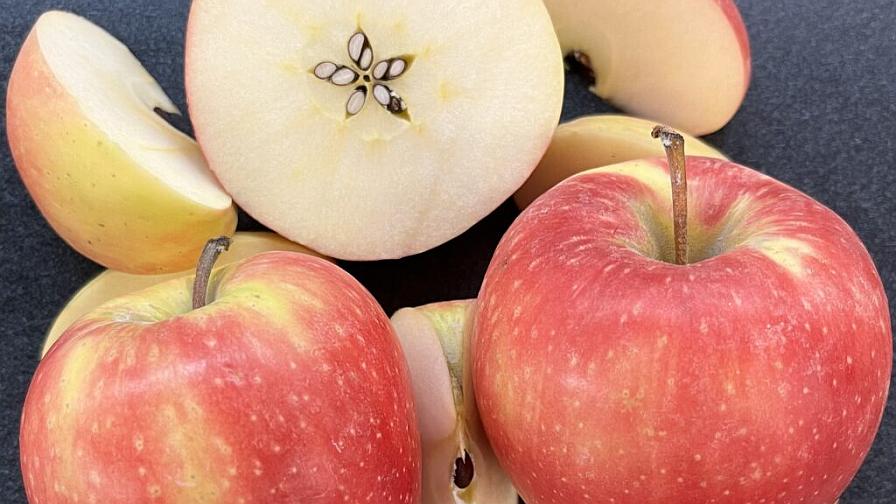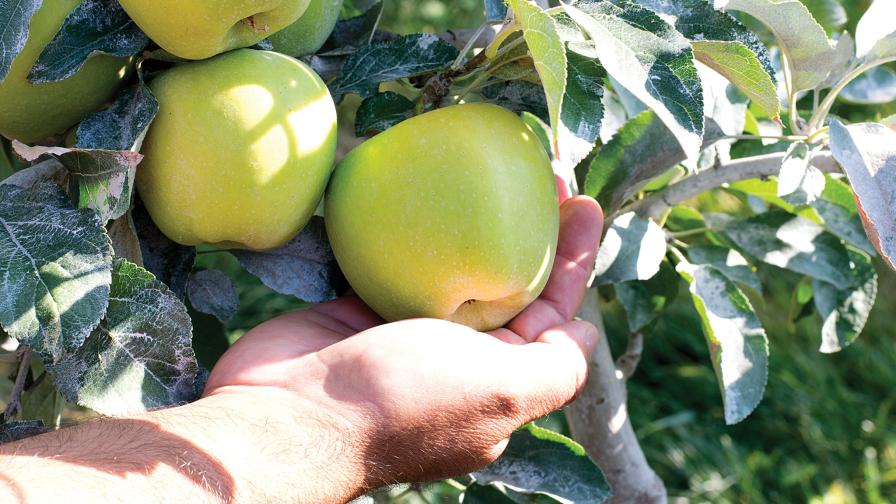Fumigation, Proper Rootstocks Key To Controlling Replant Disease
Much remains mysterious about Prunus Replant Disease (PRD) and exactly how it operates to suppress growth of young replanted almond and peach orchards, but there are ways to increase the odds that a new orchard can overcome the soilborne problem.
PRD affects almond and stone fruit trees planted in soil that previously contained the same type of trees. Though the mix of pathogens that contributes to the disease complex is not entirely known or understood, it results in a stunted root system and reduced tree growth and yield.
“PRD appears to be induced by a complex of several residual organisms and residues from previous plantings,” says Greg T. Browne, a research plant pathologist for USDA-ARS based at the University of California, Davis. “The complex creates a drag on the developing tree’s root system, especially its feeder roots, and consequently the orchard’s early growth and yield potential are suppressed.”
Browne cautions that many additional factors can affect the performance of replanted almond and stone fruit orchards, such as residual nematode populations, soil physical and chemical properties, rootstock choice, preplant soil treatments, and soil water management. Growers therefore need to consider “the big picture” when deciding to replant orchards. (Read about how to scout for and treat for nematodes here).
FUMIGATION
Preplant soil fumigation has provided the most reliable control measure for PRD, but the treatments are increasingly expensive and regulated, requiring careful planning. Browne says his lab has found that soil bioassays, which compare growth of Nemaguard peach seedlings in non-fumigated and fumigated portions of a test soil, generally predict whether or not a soil is prone to PRD, suggesting a basis for future molecular diagnostics to predict the need to fumigate at a given orchard site.
However, for now, Browne says the most proven predictor of the need to preplant fumigate for PRD is previous experience replanting in similar soils. Growers can check with nearby operations that have similar soil types and have replanted recently to see how their trees were affected, especially if they chose not to fumigate.
“Most soils that have been in almond or other stone fruits, especially sands and sandy loams, do seem to benefit from pre-plant fumigation for PRD,” Browne says. “But, past experience is extremely helpful for a grower deciding whether or not to fumigate.”
Methyl bromide, once a popular fumigant that had success in reducing PRD issues, has been phased out for most uses use because of environmental impacts. Nevertheless, the fumigant chloropicrin, alone or in combination with 1,3-dichloropropene (1,3-D) has provided excellent control of PRD, Browne said. Although chloropicrin has been best for prevention of PRD, 1,3-D is more effective than chloropicrin against plant parasitic nematodes, and this is why mixtures or co-applications of these two complementary fumigants are advocated in cases where both PRD and plant parasitic nematode challenges are anticipated.
Significant advances have also been made with GPS, which can be used pinpoint fumigant applications to where they are most needed in an orchard.
“Thanks to commercial development of the GPS technology, we are able to precisely and rapidly target shank applications of chloropicrin to tree planting sites, where they are most needed, and still get adequate control of PRD,” Browne says.
The GPS targeting can reduce the amount of fumigant used for PRD control by 50 to 90%.
ROOTSTOCK
Choosing the proper rootstock is also a key to controlling PRD.
Browne says that PRD is often expected when orchards on Nemaguard or Lovell peach rootstock are replaced with orchards on either of the peach rootstocks or on Marianna 2624 rootstock. However, peach-almond hybrid rootstocks, which have gained popularity for almonds, have generally exhibited less sensitivity to PRD. Growers need to be aware that some peach-almond hybrids can be sensitive to ring nematodes in sandy soils, however.
Browne says that, due to new rootstock developments, a key to appropriate rootstock selection is to check in with your local UC Cooperative Extension farm advisor. Many advisors conduct local rootstock trials and have valuable insights on new and standard rootstocks. Given these insights, growers will be in a good position to choose rootstock(s), Browne says.










